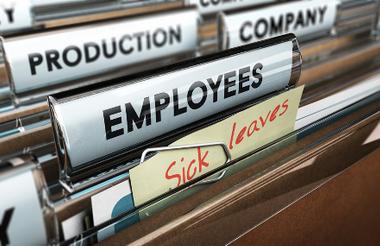In a speech on 20 March, the Chancellor announced a package of measures to support “any employer in the country – small or large, charitable or non-profit”, including:
- A Coronavirus Job Retention Scheme (CJRS);
- Deferring VAT and income tax payments;
- A statutory sick pay relief package for SMEs;
- A 12-month business rates holiday for all retail, hospitality, leisure and nursery businesses in England;
- Small business grant funding of £10,000 for all business in receipt of small business rate relief or rural rate relief;
- Grant funding of £25,000 for retail, hospitality and leisure businesses with property with a rateable value between £15,000 and £51,000;
- The Coronavirus Business Interruption Loan Scheme, offering loans of up to £5m for SMEs through the British Business Bank;
- A new lending facility from the Bank of England to help support liquidity among larger firms, helping them to bridge coronavirus disruption to their cash flows through loans;
- The HMRC Time To Pay Scheme, which provides extra time if you cannot pay your tax bill on time.
Since then guidance on the CJRS has been published and updated. It allows all UK employers to access support to continue paying 80% of their employees’ salaries up to a maximum of £2,500 per month where the business has been impacted “as a result of the crisis” and they have to furlough staff. Employers can choose whether to top up salary or not.
If they have not done so already, charity trustees will need to distinguish between key operational staff who are still required and those who can be furloughed (and therefore do no work). We would recommend that the criteria used to assess who can be furloughed is recorded in writing to show that there was an objective and reasonable approach to selection.
The guidance specifically states that changing the status of employees remains subject to existing employment law. This means that any changes to contractual entitlements must be agreed by the employee in order to take effect.
If an employee does not agree, it is unclear what would happen if the charity unilaterally imposed a “furlough”, in effect a change in contractual terms. Traditionally, given that such a change would involve providing no work and potentially reducing pay, this would give an employee the option of resigning and claiming constructive unfair dismissal. Alternatively, the employee could remain in employment but under protest and pursue an unlawful deductions claim to recover the balance of their pay. It is unclear what the practical risks of such a claim would be.
For furloughed zero-hour employees, the higher of average pay or the pay in the same month a year ago can be paid and reclaimed.
Sick pay
Where an employee is self-isolating because they are suffering from the symptoms of Covid-19, they will be entitled to receive sick pay. Under the new Statutory Sick Pay (General) (Coronavirus Amendment) Regulations 2020 (SI 2020/287), from 16 March 2020, if an employee self-isolates in accordance with government guidance then they are deemed to be incapacitated and entitled to statutory sick pay (SSP).
Charities should check contractual sick pay terms to identify whether contractual sick pay would also be payable, or consider the extent to which they are prepared to exercise their discretion to pay such employees sick pay in these circumstances.
Where an employee chooses to self-isolate (but not in accordance with government guidance or medical advice) then they will not be entitled to SSP or contractual sick pay as of right.
However, charities should explore the employee’s reasons before deciding how to treat the employee and whether to exercise their discretion to continue to make any payment. If an employee is unreasonably refusing to perform their employment duties, they will forego their right to pay and could be subject to disciplinary action. However, in the present circumstances it may be difficult to establish that their actions are unreasonable and it may be appropriate to furlough, for example, where someone vulnerable in the household is shielding.
Where a charity has concerns about an employee spreading the virus and asks them not to work (but this is outside the government guidance), the employee should receive their usual pay in the normal way.
Charities do not have to agree to employees taking time off as holiday or unpaid leave, and the position on holiday during periods of furlough is still unclear. However, they do have obligations to protect the health and safety of their staff. They must listen to any concerns of their employees, particularly those who are in groups which have been identified by the World Health Organisation as being higher risk. This obligation continues if employees are working from home and employers need to be mindful of mental health issues as well as physical wellbeing.
It may be possible for charities to offer flexible working arrangements in these circumstances or to put in place temporary measures to promote social distancing in the workplace to reduce the risk of transmission. However, for those engaged in some activities, for example social care, it may be impossible for them to perform their duties from a distance. If that is the case, the charity will need to consider adjustments to working practices.
If an employee refuses to attend work, the charity would in normal circumstances be entitled to take disciplinary action. The reasonableness of any sanction will depend on the circumstances of the case, a full examination of the employee’s reasons for refusal and whether any action could reasonably have been taken to accommodate the concerns. In cases involving Covid-19, it may be difficult to justify disciplinary action, particularly if an employee has concerns about risks in attending work. There are also likely to be reputational risks.
Charities should also be mindful of their duties under the Equality Act 2010 to make reasonable adjustments to an employee’s working arrangements where that employee has a disability within the meaning of the Act which results in a higher risk of contracting severe Covid-19.
Reducing risk
There is a legal duty to carry out risk assessments in relation to the health and safety risks posed by an organisation’s operations. Charities should carry out written risk assessments in order to ensure that they are taking reasonable steps to control risks posed by the virus to its employees, as well as anyone else affected by its operations such as volunteers, service users and beneficiaries. Charities should identify and put in place adequate control measures, and provide employees with adequate information about these measures, ensuring that they are understood and providing training where necessary.
Charities have a number of options available to them, in addition to the furlough scheme, including agreeing with staff to work fewer hours, laying-off employees temporarily, or asking them to use holiday.
If there is no realistic prospect of all employees returning to work once the crisis is over, employers may consider redundancies, which can be progressed while the employee is furloughed.
Related articles
Harriet Whitehead: Does furloughing work for charities?
The government's Coronavirus Job Retention Scheme can only do so much to help charities with increased pressure on frontline services, Harriet Whitehead reports












